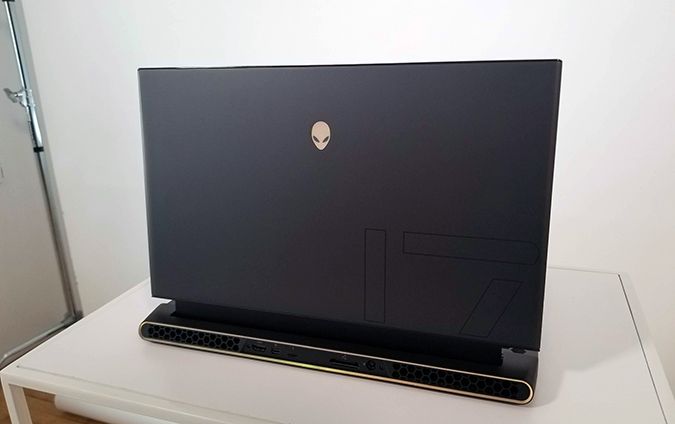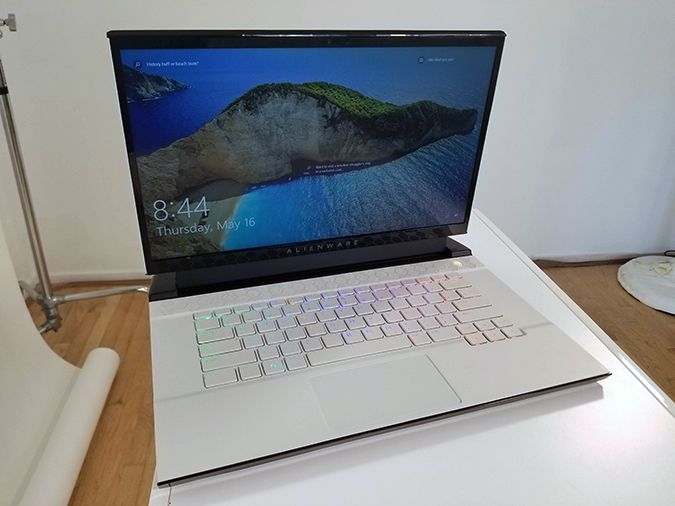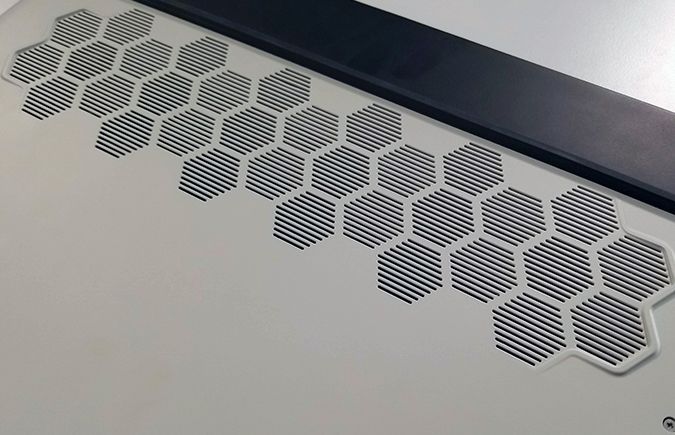Redesigned Alienware m15 and m17 Get 9th Gen CPU, RTX Graphics
In the wake of the launch of the award-winning Alienware Area-51m, two other members of the lineup have gotten a legendary makeover. Dell has pulled back the curtain on the revamped Alienware m15 and 17. Available starting in Q3, at a competitive starting price of $1,499, both systems are lean, mean and ready to take your gaming to the next interstellar level.
Design

If you love the Area-51m’s design like I do, you’re going to love the new m15 and m17. Both systems now sport the Legend design, which means plenty of curves and a toned-down light show. Like their big brother, both notebooks are available in Dark Side of the Moon and Lunar Light. But where the Area-51m is downright massive, the company has found a way to shave down a few inches, making the 15-inch m15 2 percent thinner than its predecessor and the 17-inch m17 a whopping 11 percent slimmer. Both systems will also sport narrower bezels, giving gamers more display real estate to enjoy.
Display
Speaking of the display, Alienware’s has several configurations for you to choose from for your viewing pleasure. The base model of the m15 starts with a FHD (1920 x 1080) IPS panel with a 60-Hertz refresh rate. However, you can also get the FHD screen at either 144 or 240-Hz. Not enough for you? Then considered going OLED HDR with a 3840 x 2160 (4K) resolution with 60Hz with an estimated 400 nits of brightness.

The m17 doesn’t offer nearly as much choice with FHD panels with either a 60 or 144-Hz refresh rate. But during my brief time with both systems, the displays are bright and vivid with sharp detail and contrast which is what you want in a gaming laptop.
Specs
In addition to its plethora of display choices the m15 and m17 also have some other notable specs to consider. Both notebooks can be configured with up to a 9th Gen Intel Core i9 processor with a 2TB PCIe SSD and an Nvidia GeForce RTX 2080 Max-Q GPU with 8GB of VRAM. And in a first for the m15 (with the exception of the base model), the system will have an integrated Tobii eye tracker. That means on compatible games, you can control the in-game camera with your eyes as well as activate a few productivity and power-saving functions.
MORE: Best Dell Laptops
Stay in the know with Laptop Mag
Get our in-depth reviews, helpful tips, great deals, and the biggest news stories delivered to your inbox.
Performance
With such powerful specs, both notebooks are sure to deliver top-notch performance. But just like every gaming laptop, the m15 and m17 are fighting the battle of heat dispersion in a rather small chassis. To combat potential overheating, Alienware made sure the laptops have plenty of vents, clearly hidden in the attractive honeycomb design.

Each laptop also comes equipped with voltage regulation for both the CPU and GPU (6 and 8 phases, respectively). It essentially means that integrated modules will control and lower the voltage to help keep things cool and prevent either component from exceeding their maximum voltage. That way, both the processor and graphics cards will run at their highest thresholds for longer amounts of time.
Upgradability
One of the Area-51m’s biggest claims to fame is its upgradability. This is the only gaming laptop on the market where you can upgrade everything, including the CPU and GPU. While you’ll be able to tweak the storage on the m15 and m17, you can’t give it the full monty like the Area-51m. But something is better than nothing.
Bottom Line
Alienware is evolving. While the company will still offer the m15 and m17 in last generation’s Epic design, the company is expanding consumer choice with it Legend design language. The redesigned notebooks are just as powerful if not more than their predecessors and have a bunch of cool features to help them take on the competition. I’m really looking forward to taking both models for a test spin when they arrive at the Laptop Mag offices.

Sherri L. Smith has been cranking out product reviews for Laptopmag.com since 2011. In that time, she's reviewed more than her share of laptops, tablets, smartphones and everything in between. The resident gamer and audio junkie, Sherri was previously a managing editor for Black Web 2.0 and contributed to BET.Com and Popgadget.
